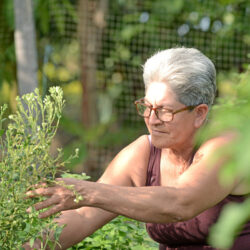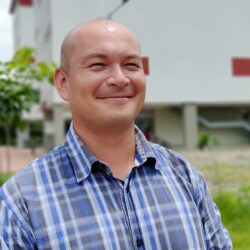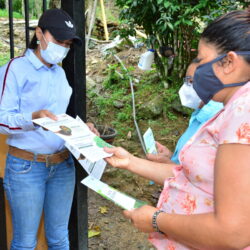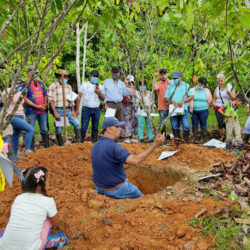Across the world, the momentum for regenerative farming is growing. Its core practices, like using compost and cover crops and reducing the use of agrochemicals, provide positive benefits for people and nature.
For the environment, regenerative agriculture practices can increase carbon storage in the soil and protect biodiversity. And for the people practicing it, they can improve yields and productivity, improve farmers’ livelihoods, and increase their resilience to climate change.
But who are these regenerative farming communities, what are their practices, and how is Rare helping them farm more regeneratively?
Regenerative Farming is a climate solution that needs behavior change
Modern farming practices, like overusing chemical fertilizers, degrade soils and water, expand the agricultural frontier, and generate high carbon emissions. These practices undermine ecological integrity and agricultural productivity and damage farmers’ livelihoods and prosperity long term.
Regenerative farming is a powerful climate change solution that can transform farmers’ relationships with the land. Rooted in behavioral change, its practices rely on farmers changing their agricultural techniques to adopt more sustainable methods.
Through Rare’s Lands for Life program, Rare uses the science of human behavior and design thinking to help smallholder farmers and their communities in Colombia shift to more regenerative, sustainable, and low-carbon agricultural and ranching practices.
What are regenerative farming practices?
Who are the people behind regenerative farming?
|
|
Small-scale farmersIn the developing world, small family farmers (those farming under two hectares) produce nearly a third of the world’s food. In Colombia, seven out of every ten farmers are smallholder farmers. Rare empowers these farmers with the skills, tools, data and connections they need to make informed farming decisions. Our behavior-centered strategies provide the basis to support farmers in shifting to more regenerative practices and becoming multipliers of sustainable practices across their communities. And we offer mobile-based, timely, and personalized farming advice to farmers and complement this with field-based support from extension agents. |
|
|
Extension agentsExtension Agents are agricultural experts in rural areas. Our behaviorally-informed, technical training enhances extension agents’ outreach to farmers. Working with regional universities, we train extension service agents to instill innovation and local capacity across agriculture communities. |
|
|
Farming community membersMembers of a farming community consist of farmers, their families, their neighbors, local leaders, food buyers, local extension agents and local government officials. We partner with community members to co-design gender-responsive social marketing campaigns that awaken farmers’ pride in their land, encourage new farming practices, and foster social cohesion and trust. |
|
|
Local leadersWe mobilize municipal authorities, community board members, water funds, watershed associations, and grassroots associations to build political support and buy-in to align agricultural productivity with environmental protection. |



